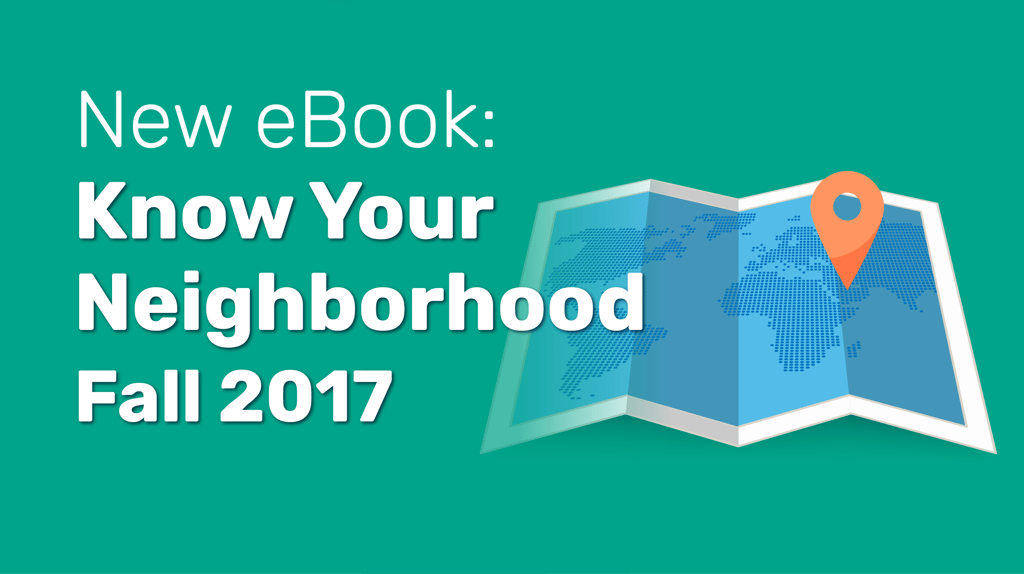
The Intead team has been at AIRC and ICEF Miami this past week meeting with a great set of education industry people from around the world. There is a consensus that 2017 has been a year like no other.
Political upheaval has left the international education community reeling—and now, more than ever, we all need to stay on our A-game.
Wouldn't an analysis of student influences and motivations in 29 countries be just the thing for you and your staff to bring that A-game? Well...
Do you remember our Spring 2017 Know Your Neighborhood report? One finding made big waves, both among our readers and in media like The Chronicle of Higher Education, The New York Times and NPR’s Marketplace. Along with FPP EDU Media, we gathered survey responses from 40,000+ students from around the globe—and 60% said they would be less likely to study in the U.S. under a Trump presidency.
It was a concerning finding, to say the least. So in the aftermath of the inauguration, we wanted to know: now that the Trump candidacy had turned into a Trump presidency, were global students still equally alarmed? And if so, what would be the best ways to keep them coming to the U.S. regardless?
You’ll find the answers and way more in our newest e-book: Know Your Neighborhood: Influencers, Interests, and Political Reactions in the International Student Population.
Read on for a bit of insight before you download this amazing, data-rich report...
In February 2017, Intead and FPP EDU Media reached out to 1.87 million prospective international students across the globe. We immediately heard back from 57,471 students hailing from 65 countries. That FPP database is such a powerful market research and student engagement tool.
So, what did the students have to tell us?
To get all the answers, you’ll need to read the e-book. Luckily for you, it’s free (and pretty fabulous, if we say so ourselves). But here’s a teaser:
Trump still has students a bit spooked:
- 54% of respondents indicated that “recent news about U.S. President Donald Trump” would make them “less likely” to study in the U.S., while 32% reported that his presidency would have no effect. Just 14% considered themselves “more likely” to study in the U.S.
- In some nations, the numbers worsened when the Trump presidency shifted from possibility to reality. 39% of Indian students, for instance, reported that a Trump presidency would be a deterrent in our 2016 sample. In February 2017, that number had climbed to 51%.
- In others countries, post-election numbers were an improvement over our pre-election data—in Mexico, for example, 80% of respondents reported that they would be less likely to study in the U.S. in 2016. In 2017, this figure dropped to 61%– still a majority, but not 80%.
But there are powerful messages that can address these student worries:
When asked about what factors are helpful in selecting a university, three responses were endorsed as “very helpful” by at least half of our sample.
- 50% of respondents indicated that a strong campus safety program was “very important” in making their school selection. In our previous research, students have often cited safety as a factor in school selection. However, this newest survey data reveals safety to be an increasingly dominant concern. We think we know why, and that's a sad thing.
- 56% reported that international faculty were a powerful draw. Is your marketing content highlighting them?
- 68% and 69% of our sample, respectively, noted the importance of on-campus jobs and strong international student services. Jobs and student services are international student constants. If your marketing content is not highlighting this information, we really need to talk.
And you have more good options for communicating these messages than you may realize:
- You may be surprised to know that, in some nations surveyed, in-person contact with agents was just about as likely to be considered “very helpful” as meeting in-person with admissions staff! This was particularly true in Central and South America. A handy country-by-country chart in this new ebook can help you plan your recruitment travel budget more effectively using these findings. You're welcome.
Ready for the full analysis of student sentiments and motivations for 29 countries? Get a full break-down of the data, country-by-country and region-by-region, in the e-book. 2017 has been trying—let us help you make 2018 a stronger year of recruitment success.
Coming soon to this space: access to our 2017 AIRC and ICEF presentation slides. We just can't stop sharing the love...lucky you!
(A widely known secret: We really enjoy doing this).


